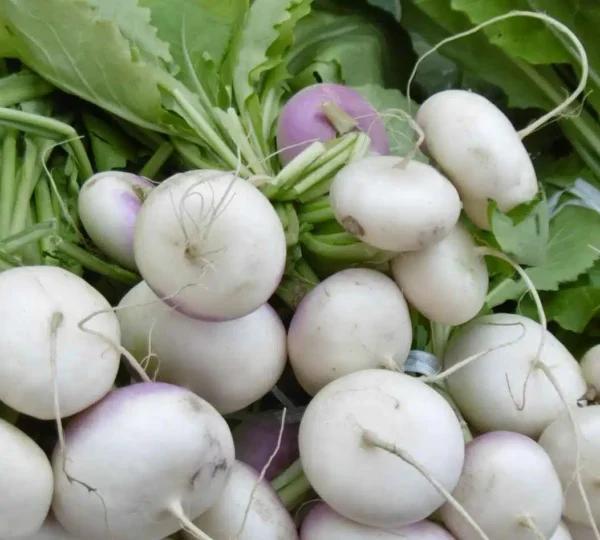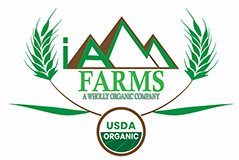Fruits and Vegetables Farm in Alabama

Fruits and vegetables farm provides Alabamian with nutrientious organic food. Alabama has fertile soil and a favorable climate, making it an ideal location for growing various fruits and vegetables. From luscious strawberries to hearty sweet potatoes, Alabama’s farms produce some of the best produce in the country. But what makes Alabama such an excellent place for agriculture, and how do these farms operate? Let’s dive into Alabama’s rich history, current practices, and future of fruit and vegetable farming.
The Rich Agricultural History of Alabama
Early Farming Practices
Agriculture has been a cornerstone of Alabama’s economy since the early days of settlement. Native Americans were the first to farm the land, cultivating crops like corn, beans, and squash. European settlers brought new farming techniques and crops, which led to a diverse agricultural landscape.
Evolution Over the Years
Over the centuries, Alabama’s farming practices have evolved significantly. Introducing machinery, advancements in irrigation, and developing pest control methods have all contributed to increased productivity and efficiency. Today, Alabama is known for its innovative and sustainable farming practices.
Climate and Soil in Alabama
Ideal Conditions for Farming
Alabama’s warm climate and abundant rainfall create perfect conditions for growing various fruits and vegetables. The state experiences long growing seasons, allowing farmers to produce multiple crops yearly.
Soil Composition and Types
The soil in Alabama is incredibly diverse, ranging from rich, loamy soils to sandy soils near the coast. Various soil types support various crops, each thriving in different conditions.
Popular Fruits Grown in Alabama
Strawberries
Strawberries are one of the most popular fruits grown in Alabama. Furthermore, fruit and vegetable farms produce sweet, juicy products. The state’s climate allows for an extended growing season, resulting in juicy, sweet berries that are a favorite at local farmers’ markets.
Blueberries
The fruits and vegetables farm in Alabama produces blueberries, which thrive in Alabama’s acidic soils and mild climate. In addition, fruit and vegetable farms in Alabama are a significant crop in the state, with farms producing high-quality berries that are sold fresh and used in various products.
Peaches
Alabama’s warm summers and well-drained soils are ideal for growing peaches, and it is known for its exceptional flavor and sweetness.
Apples
While not as common as other fruits, apples are still a significant crop in Alabama. Varieties such as Gala, Fuji, and Granny Smith are grown, providing a range of flavors and uses. Fruits and Vegetables Farm in Alabama
Vegetables Thriving in Alabama
Tomatoes
Tomatoes are a staple crop in Alabama, grown commercially and in home gardens. The state’s warm climate and fertile soil produce tomatoes with excellent taste and texture.
Peppers
Peppers, including bell and hot peppers, grow well in Alabama’s warm, sunny conditions. They are used in many dishes and are a valuable crop for local farmers.
Squash
Squash, including summer and winter varieties, is another important crop in Alabama. It is easy to grow and produces a high yield, making it a farmer’s favorite. Fruits and Vegetables Farm in Alabama
Sweet Potatoes
Sweet potatoes thrive in Alabama’s sandy soils. They are a nutritious and versatile crop grown extensively across the state. Fruits and Vegetables Farm in Alabama
Sustainable Farming Practices
Organic Farming
Organic farming is gaining popularity in Alabama as consumers demand healthier, pesticide-free produce. Organic farmers use natural methods to fertilize and control pests, promoting biodiversity and soil health.
Integrated Pest Management
Integrated Pest Management (IPM) is a sustainable approach that combines biological, cultural, and chemical practices to manage pests. This method reduces the reliance on chemical pesticides, benefiting the environment and human health.
Technological Advancements in Farming
Use of Drones
Drones are becoming an essential tool for Alabama farmers. They can monitor crop health, manage irrigation, and even precisely apply fertilizers and pesticides.
Irrigation Technologies
Advanced irrigation technologies, such as drip irrigation and automated sprinkler systems, help Alabama farmers conserve water and improve crop yields. These technologies ensure crops receive the right amount of water at the right time.
Economic Impact of Fruit and Vegetable Farming
Contribution to Local Economy
Fruit and vegetable farming is a significant contributor to Alabama’s economy. It supports local businesses, creates jobs, and stimulates economic growth in rural areas.
Employment Opportunities
Agriculture provides numerous employment opportunities in Alabama, from farm labor to marketing, distribution, and agribusiness management roles. This sector is vital for the state’s workforce.
Challenges Faced by Farmers
Climate Change
Climate change poses a significant threat to agriculture in Alabama. Changes in temperature and precipitation patterns can affect crop yields and increase the prevalence of pests and diseases.
Market Fluctuations
Farmers in Alabama also face challenges related to market fluctuations. Prices for fruits and vegetables can be volatile, impacting farmers’ income and financial stability.
Government Support and Policies
Subsidies and Grants
The Alabama government offers various subsidies and grants to support farmers. These financial aids help farmers invest in new technologies, improve infrastructure, and adopt sustainable practices.
Training Programs for Farmers
Training programs and workshops are available to help Alabama farmers stay updated on the latest farming techniques and technologies. These programs promote best practices and improve overall farm productivity. Fruits and Vegetables Farm in Alabama
Community Supported Agriculture (CSA)
Benefits of CSA
Community Supported Agriculture (CSA) programs allow consumers to buy shares of a farm’s harvest in advance. This model provides farmers with upfront capital and ensures a market for their produce.
How to Get Involved
To get involved in a CSA program, consumers can visit local farms or farmers’ markets to learn about available CSA memberships. Many farms offer seasonal subscriptions, providing a variety of fresh produce throughout the growing season.
Farmers Markets and Local Produce
Popular Farmers Markets in Alabama
Alabama boasts numerous farmers’ markets where consumers can purchase fresh, locally-grown produce. Popular markets include the Pepper Place Market in Birmingham and the Montgomery Curb Market.
Importance of Buying Local
Buying local produce supports Alabama farmers and contributes to the local economy. It also ensures that consumers get the freshest, most nutritious fruits and vegetables available.
Educational Programs and Farm Tours
School Programs
Educational programs for schools introduce students to agriculture and the importance of healthy eating. Fruits and vegetables farm in Alabama allow tours. Farm tours and hands-on activities help students understand where their food comes from.
Agritourism
Agritourism is a growing trend in Alabama, allowing visitors to experience farm life firsthand. Activities such as fruit picking, farm stays, and workshops attract tourists and provide additional income for farmers.
Success Stories of Local Farmers
Profiles of Prominent Farmers
Alabama has many prosperous farmers who have contributed significantly to the agricultural community. Fruits and vegetables farms in Alabama bring healthy food to the community. These farmers often share their experiences and innovative practices with others.
Innovative Farming Techniques
Fresh fruits and vegetable farms in Alabama are creating employment opportunities. Some Alabama farmers are adopting innovative farming techniques, such as hydroponics and vertical farming. These methods increase productivity and reduce farming’s environmental impact.
Conclusion
The future of farming in Alabama looks promising, with continued advancements in technology and sustainable practices. By supporting local agriculture, we can ensure the growth and success of Alabama’s fruit and vegetable farms. So, the next time you’re at a farmers market, remember Alabama’s farmers’ hard work and dedication and the delicious, nutritious produce they bring to our tables.

